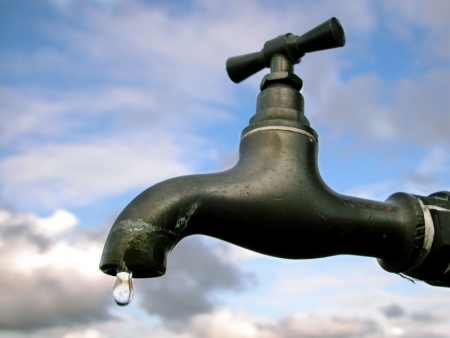The Bulawayo City Council (BCC) no longer adhere to its weekly water shedding programme due to pumping challenges at it reservoirs further compounding the water crisis in the city.
In a bid to manage the dwindling water levels at the three remaining supply dams, the local authority was forced to reduce the number of days residents receive water in their taps.
Currently, residents are enduring a 144-hour water shedding exercise after the decommissioning of three dams- Umzingwane, Lower and Upper Ncema.
But the three remaining dams – Mtshabezi, Inyankuni and Insiza Mayfair are also drying up, resulting in a situation where BCC has failed to provide water after the 144 hour water shedding exercise with residents going for a long time without water.
To mitigate the situation, the local authority supply areas worst affected by water shortages with bulk water using bowsers. In some areas, residents also rely on community boreholes.
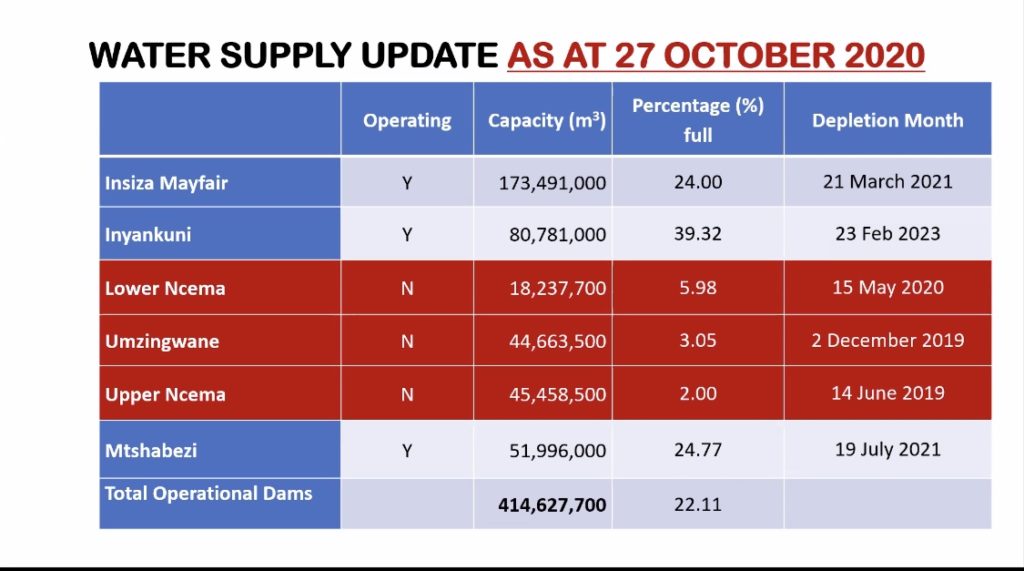
“We have failed to adhere to the 144 hours of water shedding exercise. It is not ideal given the needs of residents,” said Acting Town Clerk, Sikhangele Zhou at a water crisis meeting held virtually via ZOOM Thursday.
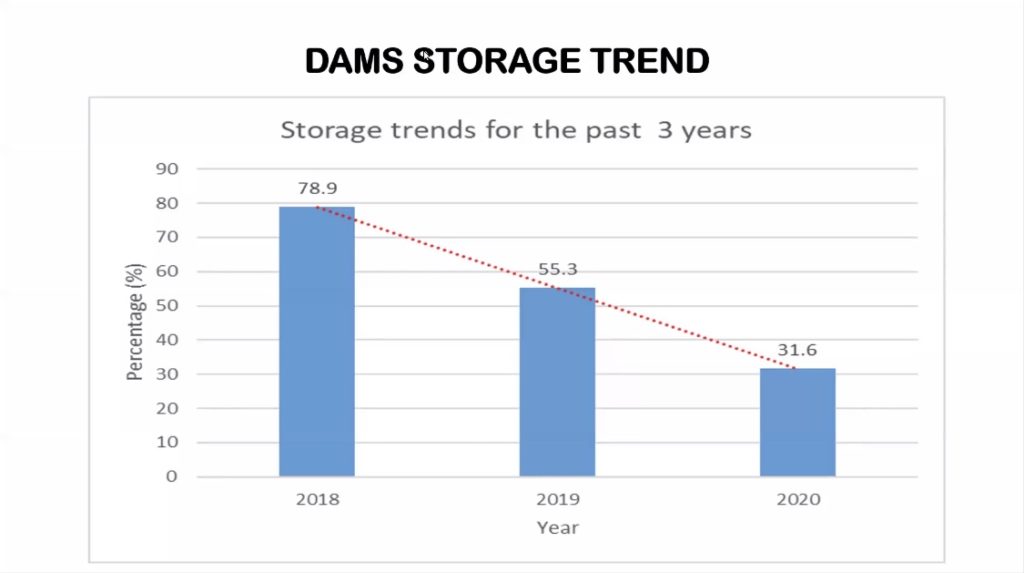
She admitted BCC was facing various problems that led to an extension of the 144 hour shedding programme.
“We know residents have become impatient with the city council due to the suffering they are going through with water shortages.”
Zhou noted that water bowsers and boreholes are not effective.
“Using underground water and bowsing is not our preferred strategy for water delivery. Sometimes the quality of underground water may not be standard as it has to be tested. But we are forced into this situation by circumstances we find ourselves in. So we have to look at financing of long term projects ,” she said.
According to Zhou, the city has four operational bowsers out of six, of which “they had been bought for road construction works and not for the water situation.”
The acting Town Clerk urged residents to put heads together and assist BCC with strategies to solve the water crisis.
“In this crisis we have to put heads together and look at resources for short term alleviation rather than long term. We can’t say we don’t like boreholes water as we have to do with what we have. Dams are drying up and heavens have not opened up so we pray the rains come early,” she said.
“We also have electricity challenges, we have a buffer dam at the criterion water works to hold water for 10 days without pumping but since we are operating live systems now we cant have that buffer as water is not restored in time. These ZESA faults are stressful. This is why we are asking everyone to put heads together to find solutions as we all live in this city.”
City Engineer, Simela Dube, confirmed Bulawayo has gone beyond the 144 hours of water shedding.
“We now re-supply water as when water is available so we can’t stick to the 144 hours,” he said.
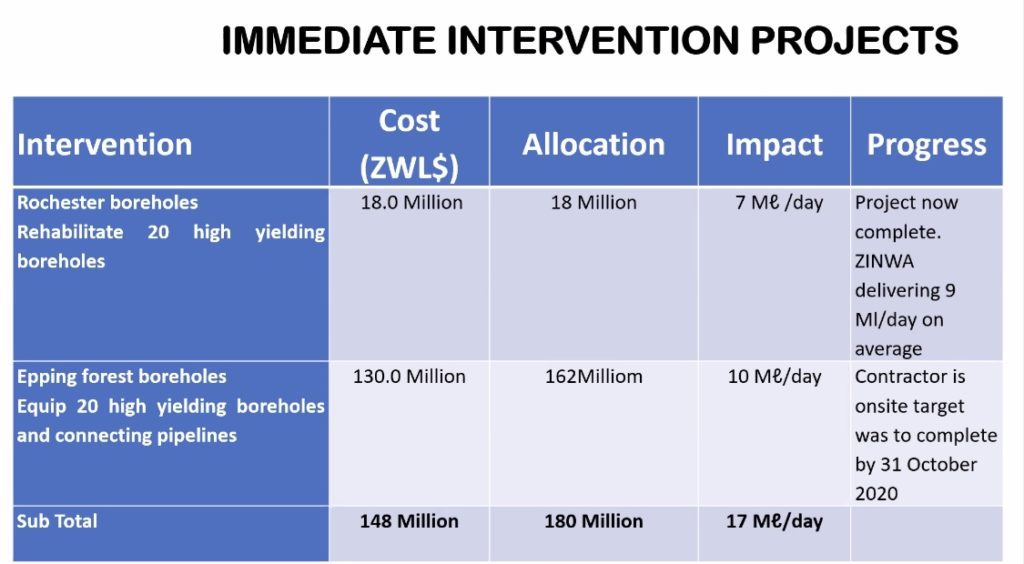
Dube, who also encouraged praying, said under the immediate short term water projects, 20 high yielding boreholes at Rochester were rehabilitated at a cost of ZWL$18 million and were now delivering nine megalitres per day.
“At the Epping forest, where 20 high yielding boreholes were to be equipped and work on connecting pipelines done, the contractor is onsite and target was to complete this by 0ctober 31, 2020. ZWL$162 million was allocated and it’s expected to deliver 10 megalitres per day,” he said
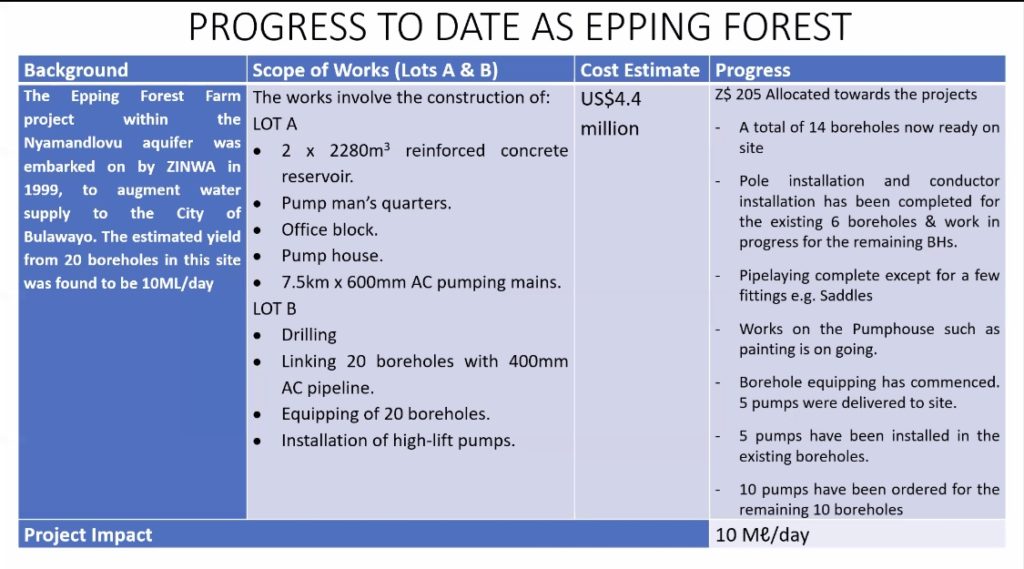
Dube said there was no progress at the Mtshabezi Pumping Scheme Optimisation to increase delivery from 17 megalitres to 36 megalitres.
“ZWL$ 42 million was allocated out of a total cost of ZWL$184 million. For the Inyankuni Pumping Scheme Optimisation, the contractor mobilising is expected on site by next week. This is expected to increase water delivery from seven megalitres to 41 megalitres per day. So far nothing has been allocated out of the cost of ZWL$106 million,” the city engineer said.

